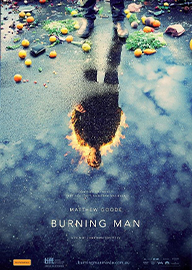ローライフ・ラブ AKA Lowlife Love
- 6.4
- Romance
- 2015
- 1h 50m
- PG-13
a compelling Japanese film that takes an unflinching look at the lives of flawed individuals in the world of cinema. The story explores the lives of three characters—each with their own struggles—seeking redemption, success, and understanding in a harsh, unforgiving environment













Comments
0Reviews
0Summery
1Please sign in to comment.
Please sign in to review.
Lowlife Love (2015) is a gritty, emotionally charged South Korean film that takes a deep dive into the world of human relationships, ambition, and the pursuit of love in a society defined by harsh realities. Directed by Lee Hae-Young, the film offers a raw and unfiltered look at the lives of people grappling with personal demons and their complex emotional journeys. Set against the backdrop of a bleak and unforgiving environment, Lowlife Love explores themes of self-doubt, struggle, and the human desire for connection. The narrative is grounded in the experiences of its protagonists, who are defined by their flaws, mistakes, and the difficult choices they make in an attempt to survive and find meaning in their lives.
The film follows a group of interconnected characters, each struggling with their own personal and professional battles. At the center of the story is the character of Jin, a man whose life is a constant battle between his aspirations and his personal shortcomings. He dreams of making it big as a director in the film industry, but his path is marred by personal issues, addiction, and a deep-seated fear of failure. As Jin tries to navigate the world of film production, he faces numerous obstacles that highlight the cutthroat nature of the industry and the fragility of human relationships. His relationships with those around him—his family, friends, and romantic partners—are filled with tension, conflict, and unspoken desires, creating a world where love is often just out of reach.
The portrayal of love in Lowlife Love is far from idealized. The film presents love as a complex and often painful force, one that is intertwined with power, control, and a deep yearning for validation. The characters' relationships are flawed, and their attempts to connect with one another often lead to disappointment, heartbreak, and betrayal. The dynamics between Jin and the people in his life are filled with emotional turmoil, as each character is forced to confront their own vulnerabilities, desires, and unresolved pasts. Love in this world is not a simple or romantic notion, but rather something that is often distorted by the pressures of life and the desperation to find meaning in a world that seems indifferent to individual suffering.
One of the film's strengths lies in its ability to capture the internal struggles of its characters. The movie is marked by its unflinching portrayal of human frailty and vulnerability, offering viewers a glimpse into the harsh realities of living in a world where dreams are often shattered and the pursuit of love becomes an elusive, unattainable goal. The character of Jin embodies this struggle, as he attempts to reconcile his dreams with the demands of the world around him. His journey is filled with moments of self-doubt and personal reflection, as he grapples with his inability to live up to his own expectations and the weight of his past mistakes. This emotional depth is complemented by a strong, nuanced supporting cast that adds layers of complexity to the story.
Visually, Lowlife Love is a striking film, with a dark and moody aesthetic that mirrors the emotional turmoil of its characters. The cinematography is designed to capture the oppressive atmosphere of the characters' lives, using tight shots and subdued lighting to emphasize the isolation and despair that pervades their world. The film’s pacing is deliberate, allowing for moments of introspection and tension to build organically. This deliberate pacing, combined with a minimalist score, creates a sense of unease and discomfort, reinforcing the idea that the characters are trapped in a cycle of self-destruction and longing.
At its core, Lowlife Love is a film about redemption and the painful journey toward self-acceptance. Despite the bleakness of the characters' lives, the film offers a glimmer of hope—a recognition that, even in the most difficult circumstances, there is still the potential for change. It suggests that love, while often painful and imperfect, has the power to heal, offering a path forward for those willing to face their own flaws and confront the darkness within. Through its raw portrayal of love, loss, and the human condition, Lowlife Love leaves a lasting impact, challenging viewers to reflect on their own relationships and the complexities of emotional connection in a world that often seems indifferent to individual struggles.